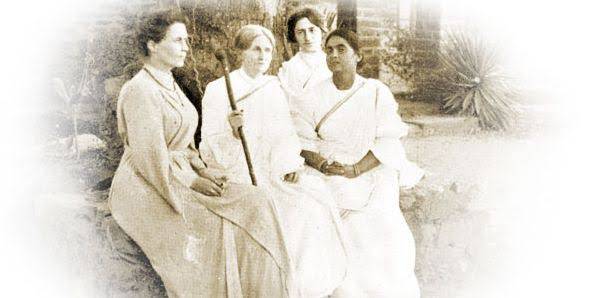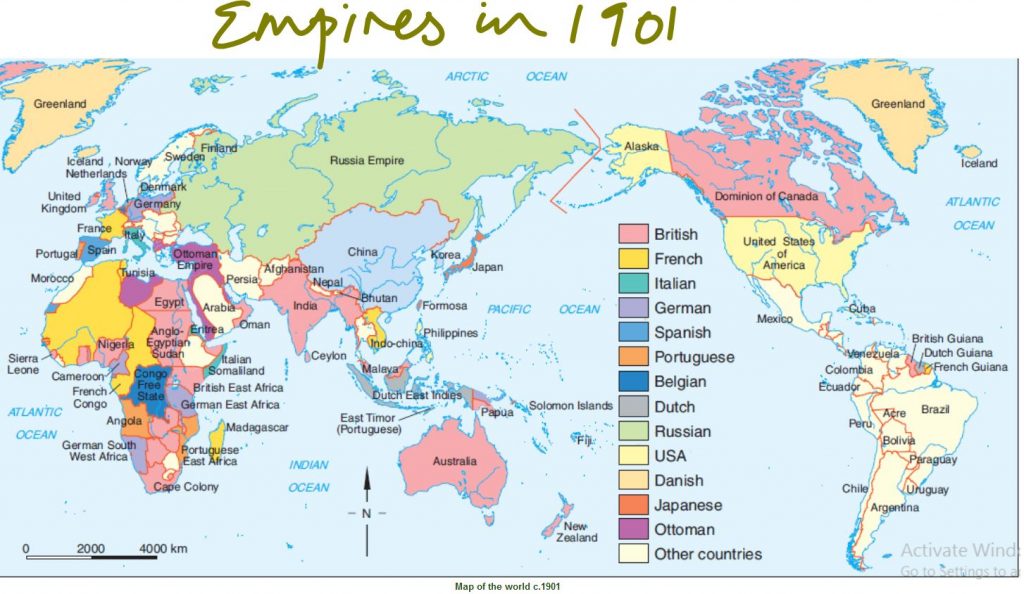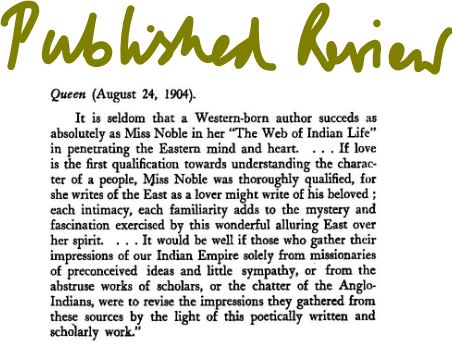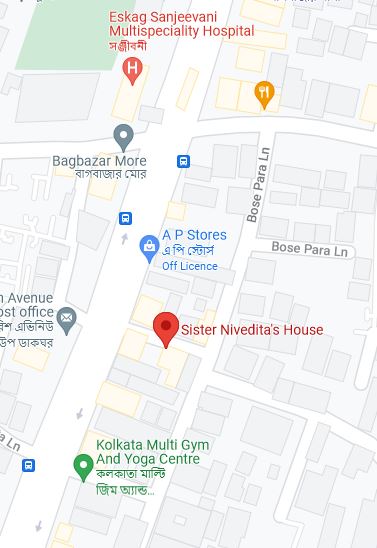More importantly, why would I be grateful to her too?

What Miss Margaret Noble did was to start a school for young women in Kolkata at the behest of Swami Vivekananda, a monk of the Ramakrishna Order. This involved begging the parents with female children to allow these girls to be taken to her schoolroom in 16A Bosepara Lane, Kolkata, accompanying them to and from school, and of course teaching them. This was in November 1898.
If it had not been for her, my mother would not be a graduate. I suspect that Birla, an Indian industrialist, would not have built Modern High School, which I attended for a couple of years before coming to the UK, and I would most likely not have received any formal education.
Miss Noble’s work changed a whole country’s attitude.
Now, it is an Indian middle class family’s aim that their male progeny should marry a woman with some formal education. Typically a graduate bride is a key objective of the educated family, for their sons.
This year the World Economic Forum reported that only 25% of women formally engage in India’s labour market. So 173 million women are participants in the economy. Miss Noble passes any modern impact analysis with glowing colours – she took women out of their home – in 120 years what she did by opening a school, and escorting a handful of girls to it, has changed the lives of 173 million women, and their husbands, children and wider families !!
We do still have a long way to go. India’s is one of the lowest workforce participation rates in the world for women, ranking India 145th out of 153 countries.
What is remarkable about Miss Noble is that she did not set out to look for this reverence. In fact, it was her own sense of reverence for learning and her incessant quest for spiritual truth, which led her to follow an inspiring monk, Vivekananda, to India.
Why isn’t she better known in the UK?
Her name was changed.
The reason for her obscurity in the UK is that Margaret Noble was initiated by her master, Vivekananda and given a new monastic name – Sister Nivedita. (Nivedan is a verb meaning ‘to offer’ – her given name means ‘the offered, or dedicated’). A very high accolade is inherent in that choice of name.
This naming did protect her to some extent, from the adverse attention of the Colonial authorities – it was seen as wrong to persecute a woman who had joined a monastic order, engaged only in education. Reports of such an arrest would not go down well in Whitehall.
The re-naming was also crucial for the furtherance of Vivekananda’s educational purpose I suspect. If I were a 19th century respectable Bengali family entrusting my daughter into the care of a woman called ‘Sister Nivedita’ I would do so with much greater ease of spirit, than if she were called Miss Margaret Noble, clearly an English name.
Margaret was not particularly famous in the UK, though she was personally a well connected woman: her work in India was seen as marginal. She was a school teacher in Wimbledon, London, when she met Vivekananda. There was nothing inconsistent in her actions when she reached India – she was starting a girls’ school with a handful of young women. Let her be, the authorities decided.
Those who delved deeper, could also see that it would not be prudent to have her written about. The extent of her devotion to her teacher Vivekananda might arouse interest in the philosophy which had led to her self-dedication. This philosophy points to the equal potential of all human beings – men and women – to attain spiritual enlightenment. This spirit of gender equality could not be spread in writing – suffragettes were already a thorn in the side of the UK government. (the link shows a women’s suffrage timeline)
More than gender equality
This spirit of equality extended beyond gender. Vivekananda derived his thinking from the personal experience of his master, Sri Ramakrishna, who said that all religions were equally capable of leading to personal spiritual enlightenment. No one religion was therefore ‘superior’ to any other.
For all imperialists, this is a threat. Think of the Taliban today, if this were the accepted world belief system – think of all the colonialists at the time. This idea constitutes a peculiar kind of heresy – because underpinning all imperialist action is the embedded belief in the moral superiority of one’s own religion.

The work Margaret Noble, started as a disciple and colleague of Vivekananda is far from finished.
Vivekananda’s modern colleagues continue to work quietly to bring these ideas into fruition. The Vedanta centre in London is located at Bourne End – and the head of that mission has been talking to Wimbledon Council to approve the erection of a bronze statue of Sister Nivedita in Wimbledon, to honour the work she did.
Heading up the Chicago mission is a senior monk, who is setting up a new divinity school, which aims to teach all religions, where no one religion will be allowed to call itself superior to any other. He announced this recently, to the joy of those of us who believe in the need for harmony amongst all peoples of the world. Two world wars, and several genocides have eroded the sense of unity amongst the inhabitants of this wonderful planet. We really can do better.

Miss Margaret Noble would have thoroughly approved of the spirit of egalitarianism across humanity, which is embraced by all these actions. She comes to mind afresh on the occasion of her birthday more than 150 years ago, which was widely celebrated two months ago. Her book, called ‘The Web of Indian Life’ shows a love for her students and their homes, which I cannot but think mattered.
An educated, effective and loving teacher is a true blessing, in anyone’s life. In this I speak from personal experience in two Indian schools, and one English one. A kind, devoted and loving educator started the story of my education.
She taught core life skills, and a university campus is being built in her memory, according to her wishes. A triumph of life skills education if ever there was one !!
